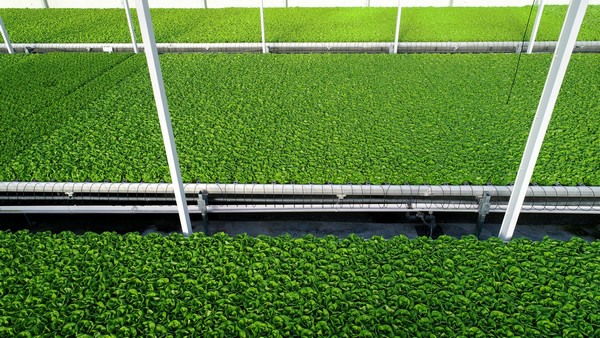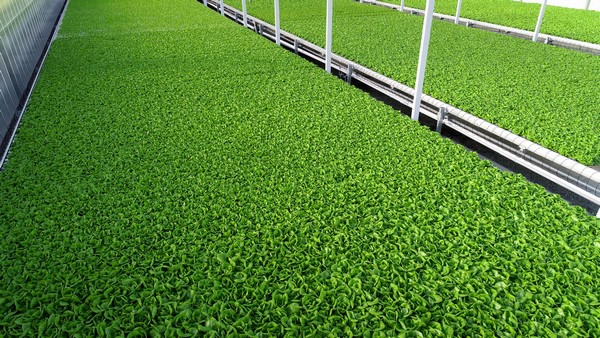The production of fruit and vegetables in Chinese greenhouses reaches its annual peak during April and May. The production capacity of larger production areas grows as the weather warms up around this time of year. Market demand also grows stronger around the same time. Manager Xu Dan of Beijing Hortipolaris recently talked about the production and sales conditions of the company.

Beijing Hortipolaris produces a number of products including cherry tomatoes, strawberries, and lettuce. Their main sales channels include high-end supermarkets as well as high-end restaurants in first-tier cities across China.
"Our volume of orders is rapidly growing now that the domestic market is gradually recovering from the impact of the COVID-19 pandemic. However, relatively cheap fruits and vegetables from open-field farms are currently entering the market and they create fierce competition for greenhouse fruits and vegetables. The price is falling now that market supply is growing. The price of our small tomatoes is 20% lower than in early March. However, the overall price level is still more or less the same as around this time last year."

"Our production facilities are all operating as usual and the sales volume in the retail market is much larger now than it was two months ago. Still, there are some limits imposed on us by external conditions. We generally use air freight to deliver our products to places like Shanghai, but the number of flights is still quite small, which means that the cost price per flight is much higher than usual. Our cost price of distribution is three times as high as normal because of the limited number of flights. We are currently in touch with a number of distribution companies to see if we can discover an alternative method that helps us keep the cost price low," explained manager Xu.

"Our overseas suppliers are also experiencing problems with export now that the COVID-19 pandemic is growing more and more intense. We mainly import coconut palm husk from India and Sri Lanka for use in hydroponic vegetable production. However, India has closed the borders and limited export. We ordered coconut palm husk in March, but this order will only be delivered in June at the earliest. In addition to coconut palm husk, we also import the seeds for our small tomatoes from Europe. Import from Europe is still functioning as usual, but the number of ships is smaller than before, and the shipping fee is nearly 50% higher than normal. European suppliers have advised their clients to order in advance and avoid uncertainty in the export market in the coming weeks," said manager Xu.

Beijing Hortipolaris has 3.3 hectare of joined greenhouses in Miyun, Beijing. "Although the cost price of joined greenhouses is much higher than glass houses or plastic covering, and it takes a long time before the initial investment is recovered, joined greenhouses also guarantee a high degree of production stability and standardization. Joined greenhouses continue production even if there is a labor shortage or not enough sunshine. Furthermore, joined greenhouses guarantee swift supply of various kinds of fruits and vegetables, which proves more than useful during a time of emergency," said manager Xu. "The municipal government in Beijing also plans to encourage the use of joined greenhouses. We wholeheartedly support this initiative."
For more information:
Xu Dan
Beijing Hortipolaris Co., Ltd.
Tel.: +86 138 1022 2990
E-mail: dan.xu@hortipolaris.com
